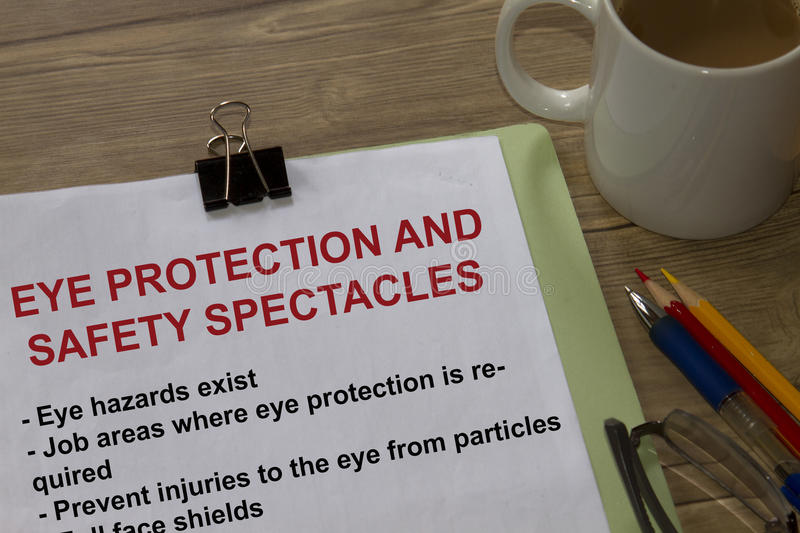News
Tax Talk Newsletter Spring 2022
Keeping your business alive
in difficult times
"It’s the reputation and relationships we’ve built that will get us through . . if you do everything with integrity, you’ll always be rewarded in the long term."
Newspaper editor Ian Carson
Networking is investing
We have been offered the following story for our newsletter. It illustrates the benefit of investing time into networking.
When business is buoyant most people put their heads down and work hard to make a good income. They don’t look to the future, which inevitably comes with trade cycles; the time when business will be bad and they will want their loyal customers. This is the story of a firm which focuses on keeping loyal customers through thick and thin.
If you are not in the habit of networking, get started as soon as possible.
The owner of a small community newspaper told us recently it was going to be a tough time ahead in the business.
Newspapers throughout the country are facing big price rises for newsprint, which now has to come from Australia after the last plant in New Zealand closed last year. Costs are also rising for aluminium plates and ink, both integral parts of the printing process. And, of course, getting the papers from the plant and to readers is more expensive as freight costs rise.
But editor Ian Carson is not too worried, even though he and wife Debbi established the Ôtaki paper only four years ago. He’s confident advertisers in the small town will stick with him, despite competition from another local paper and regional papers.
“We’ve put a lot of work in during the past few years building trust,” he says. “I would urge any business to put that high on their priorities.”
Part of that effort was to continue producing a newspaper and publishing it online during the 2020 Covid lockdowns.
“We could have withdrawn and pottered around the house for two months, but we knew readers still wanted to know what was going on. I think they appreciated that someone was putting some effort into keeping them up to date."
Ian believes the paper will survive despite the current difficulties because he’s worked on building strong relationships with customers, which includes advertisers and readers. He and Debbi have also got involved in the community.
“We’ve established business network meetings here, I speak at Amicus and Rotary etc every now and then, and I was until recently chair of the local promotions group. It’s the reputation and relationships we’ve built that will get us through."
He's had interest from other journalists about how they could start a new newspaper, but he says it will be a waste of time if they can’t make strong connections in the community.
“Networking is not everyone’s cup of tea, but business owners should always look at how they can engage in community affairs so they can build trust. It doesn’t mean you have to get into local politics, but if you do everything with integrity, you’ll always be rewarded in the long term."
Home office expenses
Companies and home office expenditure
A company can claim a deduction where it has reimbursed an employee or shareholder-employee for expenses incurred in the use of their home (so that the employee or shareholder-employee are not out-of-pocket) provided there is a sufficient connection between the expenses incurred and the business income that is being generated. The company needs to keep accurate records.
A company cannot claim a deduction if it has not incurred the home office expenses. For example, if a company uses an employee’s or shareholder-employee’s home office (that the company does not own), and the employee / shareholder-employee pays all the expenses relating to the home office.
There is more information and options for employers in Determination EE003.
You can find it at taxtechnical.ird.govt.nz/ (search keyword: EE003)
Reimbursement of employees who work from home
Determination EE003: Payments provided to employees that work from home; Employee use of telecommunications tools and usage plans in their employment.
Where an employer pays an employee a reimbursement allowance for necessary additional costs incurred due to working from home, the payments may be exempt income of the employee under section CW 17 of the Income Tax Act 2007 (ITA 2007). This means that the employee will not need to pay tax on this.
- For the period 1 October 2021 to 31 March 2023 Determination EE003 allows an employee to receive an exempt payment of:
$20 where they use their own telecommunications tools (such as a laptop, desktop, headset, mobile phone, home phone) and / or usage plans (such as mobile phone plan, internet plan, landline plan). - Or $15 if the employee does not use their own telecommunications tools and / or usage plans.
The amount of the allowance paid may be more, but both the employer and employee will need to be able to show that they have the evidence to demonstrate that some other amount is appropriately treated as exempt income. Any amount paid will be taxable income to the employee to extent that it is higher than the costs incurred by the employee.
There are additional options set out in EE003 for the following situations:
- an employee uses their personal telecommunications tools and / or usage plans principally for business purposes.
- an employee uses their personal telecommunications tools and / or usage plan principally for private
purposes. - an employee has purchased new home office
equipment.
Square metre rate for premises used for both business and private purposes
Operational Statement OS 19/03
An employee may also be able to apply the method in Operational Statement OS 19/03 2019 square metre rate for dual use of premises (issued 4 July 2019 and adjustments issued in 2020 and 2021) to work out their expenses and use that figure as the basis to seek reimbursement. The company may claim a deduction for the amount reimbursed.
OS 19/03 provides guidance on calculating deductions under section DB 18AA Square metre rate method of the ITA 2007. It allows customers who run a business from home (ie owner operators, shareholder-employees, contactors) to use a simplified method for the calculation of deductions for premises that are used for both business and personal purposes. It removes the requirement for a customer to keep detailed records of utility costs incurred on their private residence and apportion these utilities costs between the business and private use of their residence.
The amount that can be claimed as a deduction is calculated by following the detailed steps set out in OS 19/03. Guidance to make an adjustment for part year claims is also included in OS 19/03.
You can find the OS 19/03 at taxtechnical.ird.govt.nz/ (search keyword: OS 19/03)
Stop dealing with the bad players
The best thing to do with bad payers is to stop dealing with them.
All the time you put into collecting money you are entitled to could be better used to generate income.
- When you get a bad payer, be systematic with your follow-up (every Wednesday, for example).
- If you ring them, make notes of what they say and quote them if needed next time.
- If you can’t get through by telephone, use emails and text messages.
- When you contact a bad payer, your objective should be to get a commitment to pay.
- Confirm the commitment by email.
- Keep the time you allow for credit as short as possible. For many businesses a request to pay within seven days of the date of the invoice is reasonable.
- Some large organisations have made it a practice to use their suppliers’ money. When you quote or invoice one of these customers, try to build in a premium to cover your costs of collection. Many big businesses are not particularly price sensitive because they are not spending their own money.
- If it is going to be a large bill, get agreement for progress payments.
- Insist on a credit check before you give credit to someone you don’t know.
Court Cases for your interest.....
Taranaki meatworks death a lesson in 24-hour health and safety
The early morning death of a Taranaki cleaner has prompted a WorkSafe New Zealand reminder for businesses to think around the clock when it comes to worker safety. The 74-year-old cleaner died doing cleaning work in December 2019 at a meatworks in Eltham. The company has been sentenced in the H?wera District Court for health and safety failings. The cleaners employer, has pleaded not guilty and is still before the courts.
The cleaner became trapped after climbing into a bin lifter to clean it. The evidence indicates he operated the controls from inside but was unable to stop the machine.
A WorkSafe investigation found the meatworks should have developed a safe operating procedure for cleaning of the machine, and they should have had better hazard identification and risk assessment about the cleaning process.
“Commercial cleaning is a high-pressure industry that works on tight timeframes. Safety must come ahead of whatever appears to be the quickest and easiest way to do the job,” says WorkSafe’s area investigation manager, Paul West.
“You may have very competent staff and thorough procedures onsite in daylight hours. But many businesses have cleaners or other contractors coming in after hours for maintenance, so it’s critical to consider these people in health and safety planning and assessment of risks.
“His death is also a warning for other interlinked companies to ensure their health and safety practices align. Front-foot the discussion, agree your procedures and document them clearly to avoid catastrophic consequences,” says Paul West.
Background
- A fine of $340,000 was imposed. An order to pay reparations of $105,000 was also made.
- The company was sentenced under sections 36(1)(a), 48(1) and 48(2)(c) of the Health and Safety at Work Act 2015
- Being a PCBU, having a duty to ensure, so far as is reasonably practicable, the health and safety of workers who work for the PCBU while the workers were at work in the business or undertaking, namely cleaning the meat processing plant, did fail to comply with that duty and that failure exposed an individual to a risk of death or serious injury.
“I’m not their mother” no excuse for lax health and safety
A Kaikoura employer who didn’t provide appropriate eye protection has been sentenced for failings that cost a young worker his vision in one eye.
The agricultural fencing sole trader, had a 17-year-old worker who was chiselling when a piece of metal flew into his right eye in March 2020. Despite multiple surgeries, the teenager lost sight in the eye.
The agricultural fencing sole trader did not notify WorkSafe of the injury, as required by the Health and Safety at Work Act 2015. Several months later the victim’s mother did so, triggering an investigation.
When a WorkSafe inspector asked the agricultural fencing sole trader whether he told workers to use protective gear, his response was: “I’m not their mother and going to dress them every morning”.
The agricultural fencing sole trader confirmed that he had not provided full instruction to the victim on the use of personal protective equipment (PPE), such as safety glasses, because in his words “it was common sense”.
The agricultural fencing sole trader also indicated to WorkSafe he felt it was too expensive to buy PPE, saying: “I’m too small for that sort of… carry on”.
WorkSafe’s national manager of investigations, Hayden Mander says the employer’s comments reflect an outdated, unacceptable, and cavalier attitude.
“A young man at the start of his working life now has seriously impaired vision. It’s astounding for an employer to not understand the seriousness of the situation.”
“The cost of health and safety is part of the cost of doing business. The worker should have been provided with appropriate PPE, including eye protection, and required to wear it when using a chisel and hammer or any other task where there is a risk of an eye injury.”
Workers who are vulnerable because of age, inexperience, or conditions of employment may be less likely to question health and safety practices or to speak up if they are unsure.
“Beyond the obvious health and safety gaps in this case, it’s both illegal and morally wrong for an employer of any size to not notify WorkSafe of an incident like this. No employer is exempt,” says Hayden Mander.
Background
- Judge Raoul Neave ordered $22,500 be paid for emotional harm and consequential loss, given the agricultural fencing sole trader’s lack of insurance and inability to pay a fine.
- The agricultural fencing sole trader was charged under sections 36(1)(a), 48(1) and (2)(b) of the Health and Safety at Work Act 2015
Get with the Zoom revolution
Zoom became a byword for communication during the 2020 Covid lockdown.
Since then the platform has had huge growth as remote work becomes the new normal. The number of daily users shot from 10 million in 2019 to more than 300 million today.
The Government’s Digital Boost asks: Are you using it to its full potential? It also suggests three top tips to make online communication easier:
Mute/unmute yourself with the spacebar
“You’re on mute” quickly became one of the most common sayings in the pandemic, and we’re still saying it! Making sure others can hear you when you’re speaking is a constant challenge for many. Luckily, Zoom has a handy feature that allows you to unmute and mute yourself in an instant - the space bar.
Quick invite
To quickly invite someone to a meeting, use Command+I on an Apple device, or Alt+I on Microsoft Windows to open the invite window. From there, simply copy the unique meeting URL and send it to anyone you would like to attend.
Record meetings
Rewatching meetings is a great way to ensure you accurately capture information and makes it possible to share the meeting with those unable to attend. To begin recording a meeting, press Command+Shift+R on an Apple device, or Alt+R on Microsoft Windows.
Our note: If it’s impractical to meet with one of your staff, set up a Zoom meeting rather than a telephone call. Communication is not only by word of mouth. The expression on a person’s face can also convey a message.
Cost of living allowance introduced
A cost of living payment has been introduced. The main points are:
- There is no application process. Inland Revenue will automatically make the payments into the taxpayer’s bank account.
- The taxpayer must have a bank account.
- It applies to almost everybody whose income is less than $70,000.
- To qualify, the individual will need to have lodged an IR3 tax return or have received their individual income tax assessment from the Inland Revenue.
- Individuals who qualify and lodge their tax returns later in the year will still be able to get the money. However, there is a deadline of 31 March 2023. Clients who are habitually late giving us the information to do their accounts run the risk of not being able to lodge their tax return on time. Inland Revenue says: “If a return is filed on, or after 1 April 2023, your client will miss out on this payment.”
- The cost of living payment doesn’t go to people who are in jail or those who get the winter energy payment.
Payments will be made in three monthly instalments starting from 1 August 2022. - Minimum qualifying age is 18. Inland Revenue says: “You will get the payment if on the day we check for eligibility we confirm you . . . are aged 18 or older.” We therefore conclude if you become 18 any time during the current financial year to 31 March 2023, you should get Inland Revenue to check your eligibility as soon as you reach your birthday, if you think you will qualify.
Important: This is not advice. Clients should not act solely on the basis of the material contained in the Tax Talk Newsletter. Items herein are general comments only and do not constitute nor convey advice per se. Changes in legislation may occur quickly. We therefore recommend that our formal advice be sought before acting in any of the areas. The Tax Talk Newsletter is issued as a helpful guide to our clients and for their private information. Therefore it should be regarded as confidential and should not be made available to any person without our prior approval.




